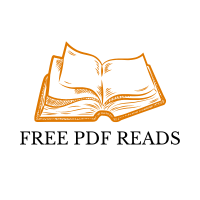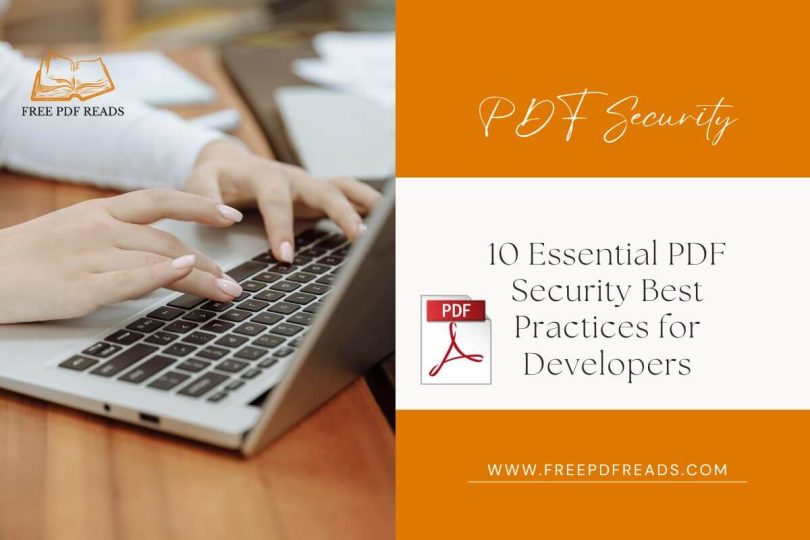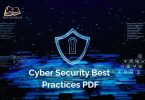PDF Security Best Practices for Developers:
1. Introduction
- Hook:“A single leaked PDF containing API keys cost Company X $2M in 2023 – here’s how to avoid it.”
- Problem: Developers often neglect PDF security, exposing sensitive data.
- Solution: 10 actionable practices to secure PDFs programmatically.
- Preview: Encryption, digital signatures, access controls, and more.
2. Best Practice 1: Enforce Encryption for Sensitive PDFs
- Keyword: “Encrypt PDF programmatically”
- Content:
- Why encryption matters (stats on PDF-related breaches).
- Python Code:
from PyPDF2 import PdfWriter writer = PdfWriter() writer.append("document.pdf") writer.encrypt(user_pwd="user123", owner_pwd="owner123") writer.write("encrypted.pdf")
- Java Code(PDFBox):
PDDocument doc = PDDocument.load(new File("input.pdf")); StandardProtectionPolicy policy = new StandardProtectionPolicy("ownerpass", "userpass", AccessPermission.getOwnerAccessPermission()); doc.protect(policy); doc.save("encrypted.pdf");
- Common Mistakes: Weak passwords, skipping owner passwords.
3. Best Practice 2: Add Digital Signatures
- Keyword: “Digital signature for PDF developers”
- Content:
- How digital signatures prevent tampering.
- PowerShell Code(iTextSharp):
$cert = New-Object System.Security.Cryptography.X509Certificates.X509Certificate2("cert.pfx", "password") $signature = New-Object iTextSharp.text.pdf.security.PdfPKCS7($cert.PrivateKey, $cert, [System.Security.Cryptography.HashAlgorithmName]::SHA256, $false) PdfSigner.SignDocument("document.pdf", "signed.pdf", $signature)
- Tools: Adobe Sign API, OpenPDF.
4. Best Practice 3: Secure PDF Storage & Access
- Keyword: “Secure PDF storage solutions”
- Content:
- Store PDFs in encrypted cloud buckets (AWS S3, Azure Blob).
- Code: AWS S3 encryption via Python SDK:
import boto3 s3 = boto3.client('s3', aws_access_key_id='KEY', aws_secret_access_key='SECRET') s3.upload_file('encrypted.pdf', 'my-secure-bucket', 'encrypted.pdf', ExtraArgs={'ServerSideEncryption': 'AES256'})
- Access Control: IAM roles, pre-signed URLs.
5. Best Practice 4: Audit PDF Metadata
- Keyword: “Remove PDF metadata programmatically”
- Content:
- Risks of hidden metadata (author names, software versions).
- Python Code(PyMuPDF):
import fitz doc = fitz.open("document.pdf") doc.del_xml_metadata() # Remove XML metadata doc.set_metadata({}) # Clear standard metadata doc.save("clean.pdf")
6. Best Practice 5: Prevent PDF Injection Attacks
- Keyword: “PDF injection attack prevention”
- Content:
- How attackers inject malicious scripts into PDFs.
- Validation Code(Node.js):
const pdf = require('pdf-parse'); const data = await pdf(pdfBuffer); if (data.text.includes(")) { throw new Error("Malicious script detected!"); }
7. Best Practice 6: Use Watermarks for Confidentiality
- Keyword: “Add watermark to PDF programmatically”
- Content:
- Dynamic watermarks for drafts/sensitive files.
- Python Code(ReportLab):
from reportlab.pdfgen import canvas c = canvas.Canvas("watermark.pdf") c.setFont("Helvetica", 40) c.setFillGray(0.5) c.drawString(100, 500, "CONFIDENTIAL") c.save()
- Merge watermark with PyPDF2.
8. Best Practice 7: Automate Security Audits
- Keyword: “Automate PDF security audits”
- Content:
- Schedule nightly audits with cron jobs:
0 2 * * * python3 /scripts/audit_pdfs.py
- audit_pdfs.py: Checks encryption, metadata, signatures.
- Schedule nightly audits with cron jobs:
9. Best Practice 8: Implement Role-Based Access
- Keyword: “PDF role-based access control”
- Content:
- Restrict PDF editing/printing via code.
- Java Code(Apache PDFBox):
AccessPermission ap = new AccessPermission(); ap.setCanPrint(false); ap.setCanModify(false); StandardProtectionPolicy policy = new StandardProtectionPolicy("ownerpass", "userpass", ap);
10. Best Practice 9: Secure File Sharing
- Keyword: “Secure PDF sharing for developers”
- Content:
- Tools: Encrypted email (ProtonMail), SFTP.
- Code: Share via encrypted ZIP:
import zipfile with zipfile.ZipFile('secure.zip', 'w', zipfile.ZIP_DEFLATED) as zipf: zipf.write('encrypted.pdf', arcname='document.pdf', pwd=b"password123")
11. Best Practice 10: Stay Updated on Compliance
- Keyword: “GDPR/CCPA PDF compliance”
- Content:
- Regulations affecting PDF storage (GDPR Article 32).
- Tools: VeraCrypt for encrypted volumes, automated redaction.
12. FAQ Section
Q1:“How do I encrypt a PDF without third-party tools?”
- Use built-in OS tools:
qpdf --encrypt "userpass" "ownerpass" 256 -- input.pdf encrypted.pdf
Q2:“Can PDFs be hacked even with encryption?”
- Yes, if weak passwords are used. Always use AES-256 + strong passwords.
13. Conclusion
- Recap top 3 practices (encryption, signatures, audits).
- CTA:“Download our free PDF Security Checklist for Developers [Link].”
- “Next: Learn how to automate PDF workflows ”






Leave a Comment